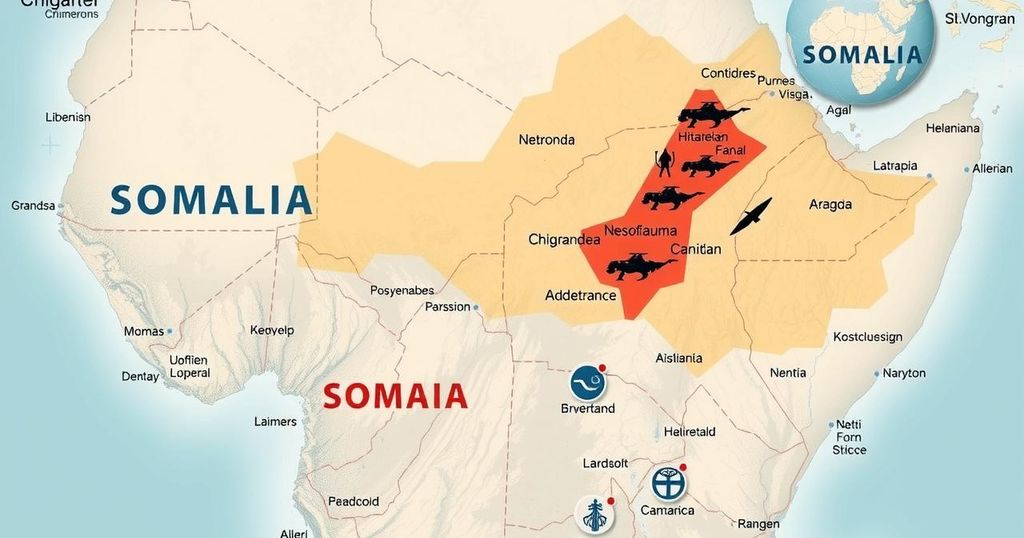The Islamic State in Somalia, linked to ISIS, emerged from al-Shabaab in 2015. Sheikh Abdulqader Muumin leads the group, which has been involved in various terrorist activities and operates mainly through extortion. Recent military operations have resulted in significant losses for the group; however, it remains active and capable of recruiting fighters. The Islamic State’s standing in Somalia is often overemphasized compared to al-Shabaab, highlighting the complexities of the region’s jihadist landscape.
The Islamic State in Somalia is a branch of the global jihadist organization known as ISIS, primarily operating in Puntland, Somalia’s semi-autonomous northern territory. Notably, it was the target of the first foreign combat operation under President Trump in February 2025. The group has been implicated in mounting terror attacks, including those aimed at the Vatican and the Israeli embassy in Stockholm. Researcher Stig Jarle Hansen investigates its formation, ascent, and recent military defeats in Puntland’s mountainous terrain.
The Islamic State in Somalia emerged in 2015 following a split from al-Shabaab, a previously dominant jihadist organization in northern Somalia. Sheikh Abdulqader Muumin, the group’s future leader, originated from one of al-Shabaab’s splinter factions. The group benefitted from the local Ali Suleiban sub-clan’s connections to smuggling and piracy, capitalizing on Puntland’s long-established smuggling routes and its relative autonomy from the Somali central government.
Muumin’s radicalization occurred during his time in Sweden and later the UK, before he returned to Somalia and joined al-Shabaab, where he gained notoriety. In 2015, he transitioned to lead the Islamic State in Somalia, supported by Mahad Moalim, another Ali Suleiban clansman. The group marked a pivotal moment with a suicide bombing in 2017 at Bosaso’s Juba Hotel, which facilitated extortion efforts against local businesses.
By 2018, the Islamic State in Somalia was elevated to a full province of ISIS. It took on responsibilities for crucial regions in Central Africa, receiving financial resources from both the Islamic State and local extortion activities. Reports indicate that the group generated approximately US$2.3 million in early 2022 from various illicit activities including extortion and trade.
However, the Islamic State’s prominence in Somalia has been exaggerated. It has never successfully captured substantial territories and its numbers are dwarfed by those of al-Shabaab, estimated at only 600 to 1,600 fighters as of 2024. Allegations regarding attacks planned for the Israeli embassy and the Vatican are largely unsubstantiated.
Despite recent military setbacks, including significant losses during counter-offenses spearheaded by Puntland authorities with U.S. air support, the Islamic State remains operational. Key leaders Muumin and Abdirahman Fahiye have not been reported dead, and the group retains significant financial capabilities through extortion. Additionally, they may recruit among local populations, notably the Oromo Ethiopian refugees seeking livelihoods.
In summary, the Islamic State in Somalia has had a complex trajectory marked by its origins from al-Shabaab, rapid rise due to strategic local connections, and operating with significant financial backing. Despite suffering substantial defeats in recent military engagements, it continues to pose a threat due to its extortion practices and potential recruitment opportunities, demonstrating resilience amid challenges. Efforts to combat this group are ongoing, showcasing the enduring conflict in Somalia.
Original Source: www.inkl.com






